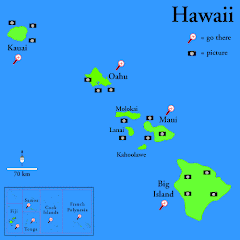The Hawaiian government under the reign of King Kamehameha III (Kauikeaouli) was financially imperiled. Insolvency of the government placed Kauikeaouli in a dilemma and therefore, the government needed funding from tax revenues and other sources. This situation called for the need to offer sale of government lands to fund the government. Capitalism was now a driving force in the Hawaiian economy. No longer did the feudal system (called the Ahu'pua'a or shared land) exist for natives. Many foreigners bought real estate from the government.
Social Studies benchmark SS.7HHK.3.4 is concerned primarily with the development of the sugar industry. As a precursor to the development of the sugar industry, private companies, who wanted to exploit Hawaiian soil for sugar and pineapple, needed title to the land.
We will perform an actual landmark court case entitled, Oni versus Meek, in the classroom to elucidate the conflict between east and west - between the traditional Hawaiian values vis-a-vis capitalism.
However, the need to organize our thoughts for this benchmark should be noted in an outline.
Instructions: Using the History of the Hawaiian Monarchy text, fill in the missing parts of this outline:
Title: Major Transitions in Hawai'i
I. Describe the development of the sugar industry
A. Demand for Sugar
B. Plantation
1) Capital investments
C. Effects
1) Economic
2) Social
3) Political
II. The Big Five
A. The Establishment
1) AMFAC
2) Theo H. Davies
3) Castle & Cooke
4) C. Brewer
5) Alexander & Baldwin
III. The Great Mahele
A. The traditional (Hawaiian Cultural way of life) versus Free Market System (Capitalism)
1) Define Capitalism
2) The Ahu'pua'a
a) Comparing and Contrasting to the Feudal System.
IV. Immigration
A. Contract Laborers
1) China
B. Relationships
C. Cultures
D. Assimilation or acculturation into the American way of life.
